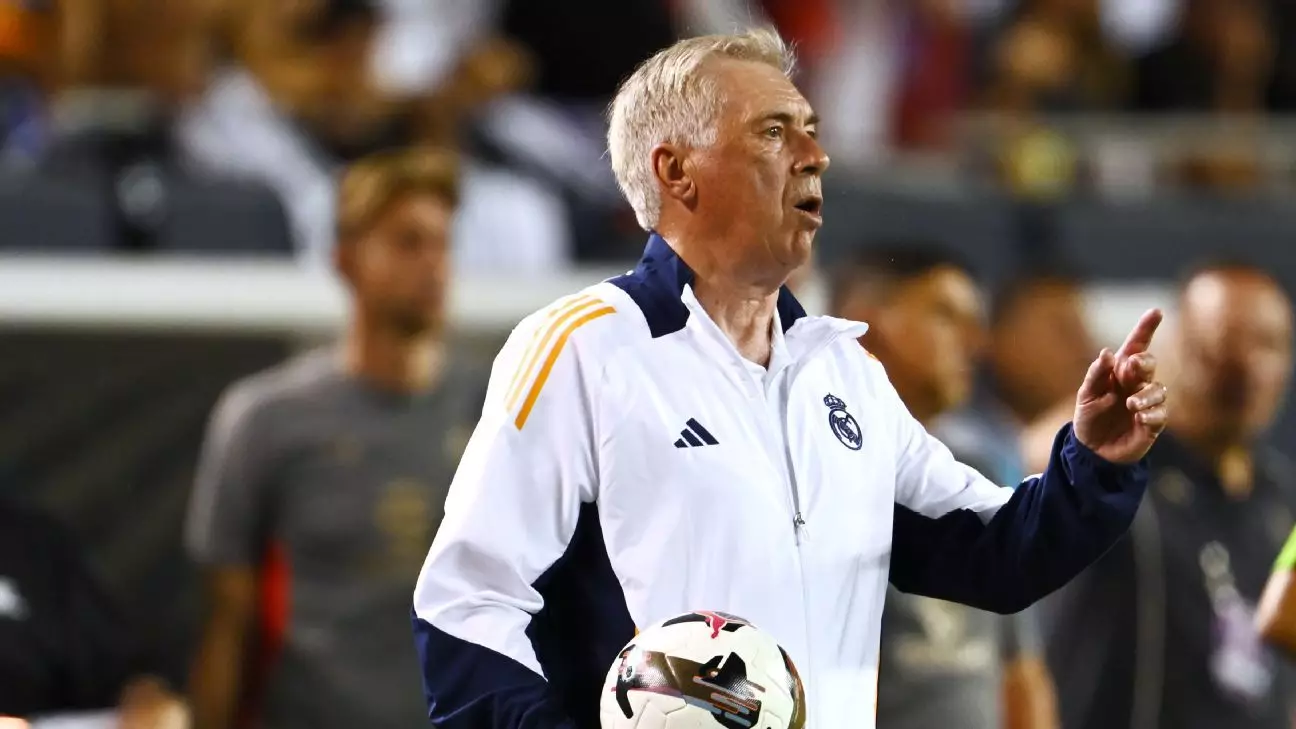The age of modern football has led to an unprecedented increase in the number of matches played by top professionals each season. With league competitions, domestic cups, continental tournaments, and international fixtures, it is not uncommon for elite players to rack up an astounding number of games, topping 80 or even 85 per season. This mounting workload has prompted discussions among players, coaches, and football authorities regarding the sustainability of such a brutal schedule. Recently, Real Madrid’s head coach Carlo Ancelotti weighed in on the issue, proposing that a reduction in games could be a viable route, even if it meant accepting a pay cut.
The football calendar has evolved over the years, with the introduction of an expanded Champions League format and a reimagined Club World Cup contributing to the already dense schedule. This expansion, while offering clubs increased financial opportunities, has left players feeling overwhelmed. As Ancelotti indicated, many high-profile athletes are beginning to voice concerns about the physical toll of this packed calendar. The potential for rising injury rates due to overexertion is not merely a concern for players; it poses threats to the overall integrity of the game. Indeed, when seasoned professionals suggest they might be willing to accept reduced wages for fewer matches, it speaks volumes about the current levels of strain they endure.
Ancelotti’s comments are echoed by players across various clubs, notably by Manchester City’s Rodri, who hinted at the possibility of strike actions if player welfare continues to be overlooked. The gravity of these statements illustrates just how close players feel to their breaking point. It is not simply a matter of preference but a necessity for maintaining their health and longevity in an increasingly demanding sport. The notion that a reduction in games could lead to a decrease in salaries is a revealing indicator of the shifting dynamics in football, where financial wealth is pitted against physical well-being.
On the tactical front, Ancelotti remains focused on ensuring his team sustains performance while grappling with the physical demands placed upon them. He recently reflected on Real Madrid’s current form following a victorious outing against Stuttgart. Despite securing a hard-fought win in their Champions League opener, Ancelotti admitted that there is still room for improvement. His aspirations for the team’s performance underscore the delicate balance between playing well and minimizing injuries, a dual priority that requires vigilant management.
The coach’s contemplation about prospective tactical changes, such as a shift to a four-man midfield, emphasizes his commitment to finding equilibrium within the squad. However, he rightly observes that true balance is not solely a function of formation but requires a collective undertaking. Building a compact, cohesive team is a gradual process, and with time, he believes Madrid will find their rhythm, reminiscent of successful seasons in the past.
In light of addressing immediate challenges, Ancelotti also takes a forward-looking stance. He has outlined plans for incorporating young talents like Endrick more prominently in the team’s matchday squads. The Brazilian teenager’s rapid rise and effective performances have been a welcome note amid the broader concerns about player fatigue. By promoting younger players, Ancelotti not only prepares his squad for the future but also alleviates some pressures on seasoned players.
Injury news, especially concerning critical players such as Eduardo Camavinga, has also been pivotal in shaping the team’s availability. Ancelotti’s optimism about Camavinga’s recovery will help shore up the midfield, underscoring the fluid interplay between squad fitness and performance levels in a compressed schedule.
As this season progresses, the discussions surrounding player workload, compensation, and match frequency are more important than ever. Stakeholders in football must engage in honest conversations about the balance between financial gain and player welfare. The landscape of professional football is changing, and Ancelotti’s assertions might just be the beginning of a necessary shift, ensuring that the beautiful game remains sustainable for its most crucial asset: the players.


Leave a Reply